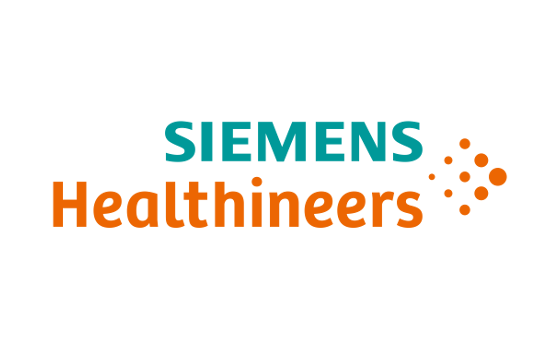 Siemens Healthineers announced today a master collaboration agreement with Novartis Pharma AG to design, develop, and commercialize diagnostic tests for therapeutic products across Novartis' therapeutic pipeline. The initial program supports the development of a serum neurofilament light chain (sNFL) immunoassay to support Novartis’ MS and other neuroscience programs.
Siemens Healthineers announced today a master collaboration agreement with Novartis Pharma AG to design, develop, and commercialize diagnostic tests for therapeutic products across Novartis' therapeutic pipeline. The initial program supports the development of a serum neurofilament light chain (sNFL) immunoassay to support Novartis’ MS and other neuroscience programs.
NFL is a highly specific biomarker for nerve cell injury measured in cerebral spinal fluid and blood . Blood NFL levels have been reported to change in variety of serious neurological conditions including MS and have been related to disease activity and disability outcomes.(1)
Multiple sclerosis (MS) is a chronic inflammatory disease of the central nervous system characterized by myelin destruction and axonal damage in the brain, optic nerves and spinal cord.(2) The Multiple Sclerosis foundation estimates that more than 2.5 million people in the world and more than 400,000 people in the United States have MS. By 2025, an estimated $23 billion will be spent annually on treating the disease.(3)
Novartis, as a leading pharmaceutical company in neuroscience, has a strong ongoing commitment to bring transformative treatments to people suffering from neurological conditions, such as Multiple Sclerosis, where there is a high unmet need.
This collaboration will leverage Siemens Healthineers’ expertise in the development of innovative clinical diagnostic solutions that may be run on Siemens Healthineers global population of ADVIA Centaur and Atellica immunoassay platforms designed for use in hospitals, reference laboratories, and specialty laboratories.
"We are looking forward to our collaboration with Novartis as it promises to yield innovative diagnostic solutions to address critical unmet clinical needs," said Deepak Nath, PhD, President, Laboratory Diagnostics, Siemens Healthineers. "Our initial focus on blood-based diagnostic solutions for Multiple Sclerosis patients is another example of Siemens Healthineers commitment to shape the future of precision medicine."
The global burden of chronic neurology disease4 continues to increase, and a 2016 study concluded that neurology disorders are the second leading cause of death and leading cause of DALYs (disability-adjusted life-year). sNFL expands Siemens Healthineers Laboratory Diagnostics Neurology test menu, which also includes AB42 and Tau for the clinical diagnosis of Alzheimer’s disease. Both AB42 and Tau were recently granted FDA Breakthrough Device Designation for expedited reviews.
Additionally, Siemens Health laboratory, based in Berkeley, California offers a range of neurobiomarker testing services including sNFL, for biopharmaceutical company therapy development programs. Siemens Healthineers offers a comprehensive range of Neuroradiology products and services, and was the first company worldwide to announce a comprehensive amyloid imaging solution for the U.S. market for the detection of amyloid plaques.
About Siemens Healthineers
Siemens Healthineers AG (listed in Frankfurt, Germany: SHL) is shaping the future of Healthcare. As a leading medical technology company headquartered in Erlangen, Germany, Siemens Healthineers enables healthcare providers worldwide through its regional companies to increase value by empowering them on their journey towards expanding precision medicine, transforming care delivery, improving the patient experience, and digitalizing healthcare. Siemens Healthineers is continuously developing its product and service portfolio, with AI-supported applications and digital offerings that play an increasingly important role in the next generation of medical technology. These new applications will enhance the company’s foundation in in-vitro diagnostic, image-guided therapy, and in-vivo diagnostics. Siemens Healthineers also provides a range of services and solutions to enhance healthcare providers ability to provide high-quality, efficient care to patients. In fiscal 2019, which ended on September 30, 2019, Siemens Healthineers, which has approximately 52,000 employees worldwide, generated revenue of €14.5 billion and adjusted profit of €2.5 billion.
1. Khalil et al.: Neurofilaments as biomarkers in neurological disorders. Nature Reviews; Neurology. 2018; 14: 577–589.
2. Guthrie E. Multiple sclerosis: a primer and update. Adv Studies Pharm. 2007;4(11):313-317.
3. iHealthcareAnalyst. "Global Multiple Sclerosis Drugs Market $23.5 Billion by 2025." Published January 14, 2020.
4. "Global, regional, and national burden of neurological disorders, 1990–2016: a systematic analysis for the Global Burden of Disease Study 2016." Lancet Neurol. 2019 May; 18(5): 459–480.